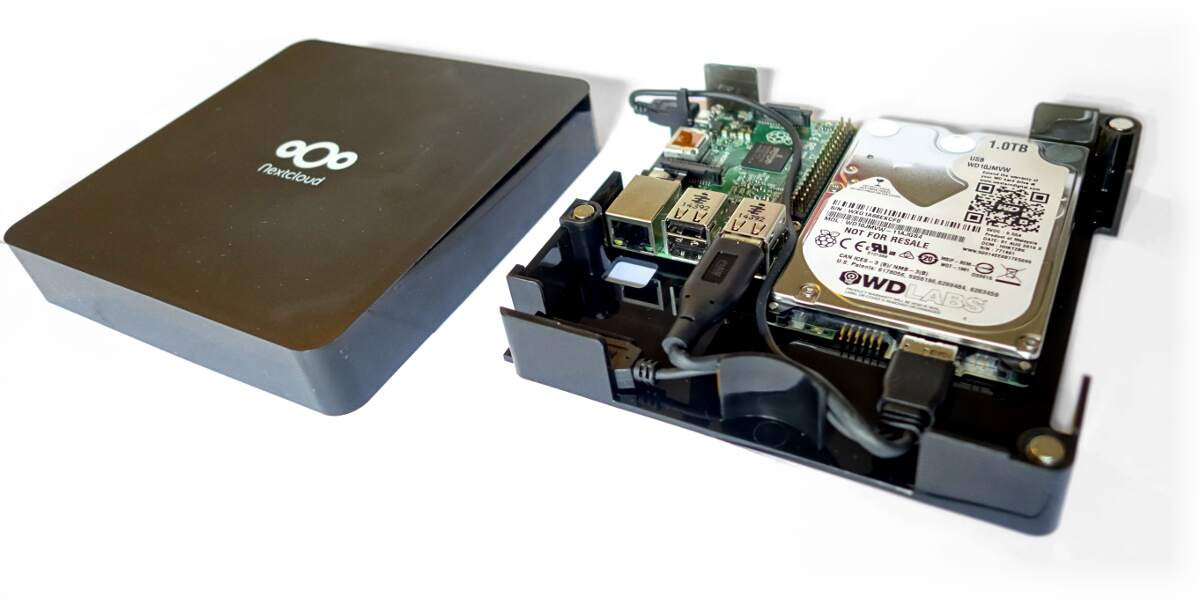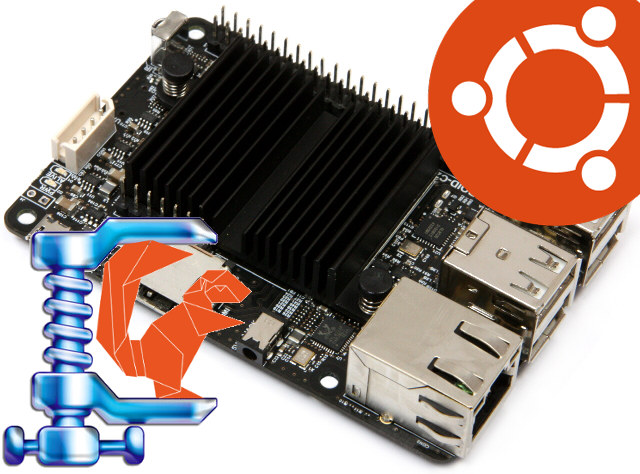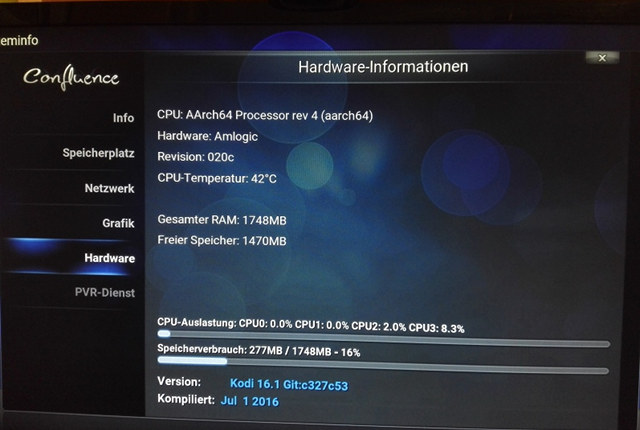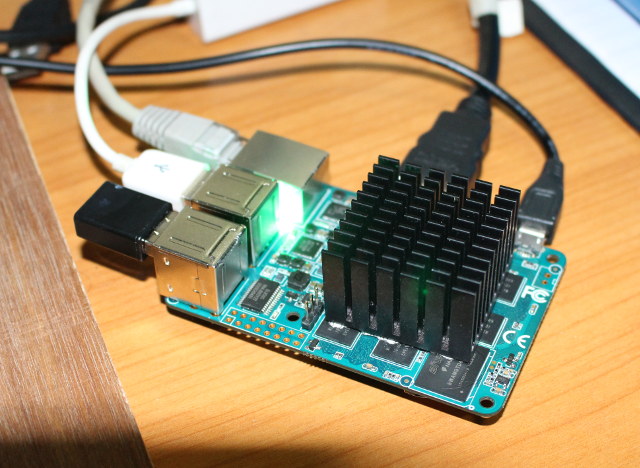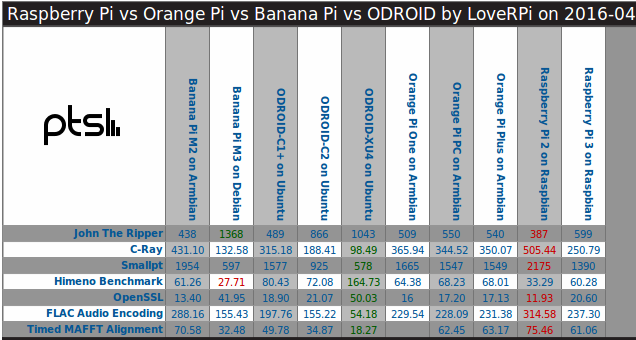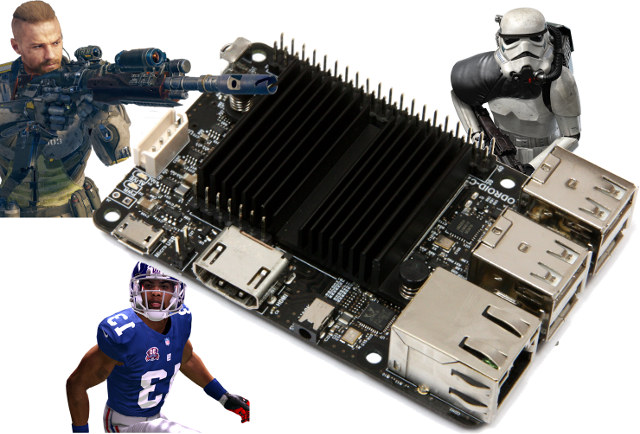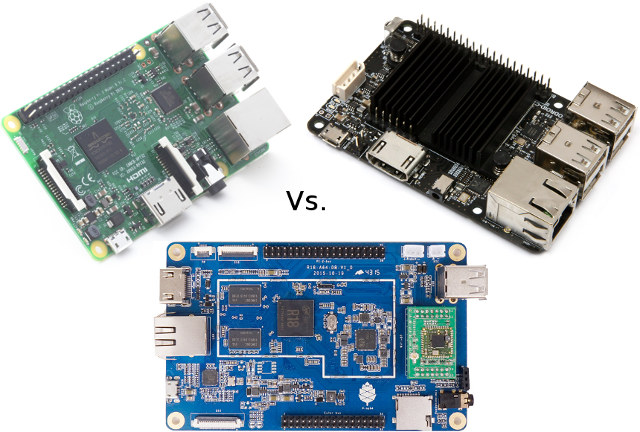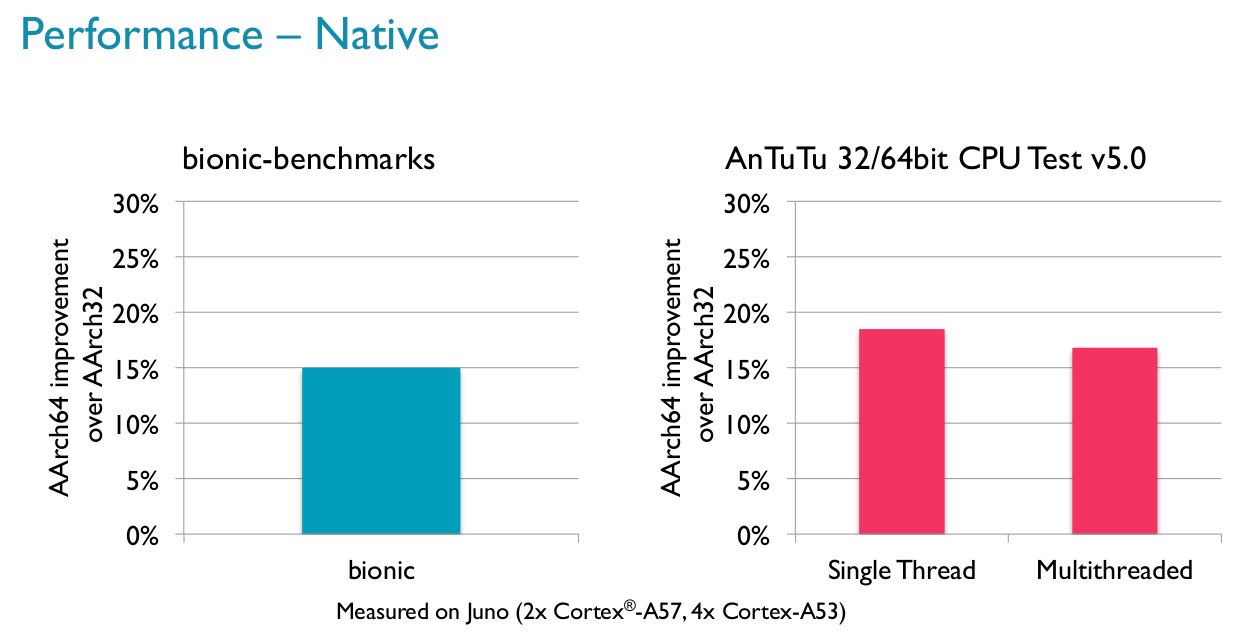While there are plenty of cloud services provided by companies such as Dropbox or Google, you may want to manage you own private cloud server instead for performance and/or privacy reasons. One typical way to do this is to install Owncloud or Nextcloud (a fork of Owncloud), on a Linux computer or board such as Raspberry Pi 3. The former is usually a little expensive for just this task, the latter often results in cable mess, and in both case, some people may not be comfortable with setting it all up. Nextcloud, Western Digital, and Canonical seems to have addressed most of those issues with Nextcloud Box including a 1TB USB 3.0 WDLabs harddrive, Nextcloud case with space for the drive and small ARM or x86 Linux development boards, and a micro USB power supply. The kit also include a micro SD card pre-loaded with Snappy Ubuntu Core, Apache, MySQL […]
Minimal Ubuntu 16.04 Image for ODROID-C2, and C1/C1+ Boards, Ubuntu Core Image for Bubblegum-96 Board
If you’ve been wanting minimal Ubuntu distributions for your server, IoT, or other headless projects, there are some good news from Hardkernel with the release of a minimal Ubuntu 16.04 image for ODROID-C2 and ODROID-C1+ boards, and Canonical has recently announced Actions Semi S900 based BubbleGum-96 board was getting support for Ubuntu Core distribution. If you’re using an ODROID board you can download ubuntu64-16.04-minimal-odroid-c2-20160803.img.xz (196MB) firmware, which become 1.7 GB once uncompressed and flash it 2GB or greater micro SD card. After Raspberry Pi 2 and Samsung Artik 5/10, Bubblegum-96 is the third officially supported board that can run Ubuntu Core. You can download the 3.63GB beta image and instructions to flash it from an Ubuntu 16.04 machine on Mega. Bugglegum-96 is a 96boards compliant development board based on an quad core Cortex A53 processor with 2GB RAM and 8GB flash manufactured and sold by ucRobotics for $89. Jean-Luc Aufranc […]
LibreELEC 7.0 Ported to Amlogic S905 TV Boxes & ODROID-C2 Board
Most TV boxes are now sold pre-loaded with Android, but there’s still a fair amount of people who only want to play videos in their box, or only run Kodi, so they may prefer a Linux experience. Some companies provide ready-to-use solution such as ARNU Box Mach 10 64-bit Pure Linux, but in some cases it’s also possible to side-load OpenELEC or LibreELEC, with the main advantage being that it is usually quite cheaper at the cost of being a bit more complicated. Thanks to a comment by Sabai, I discovered LibreELEC 7.0.0 had been (unofficially) ported to Amlogic S905 TV boxes, and tested one devices such as NEXBOX A95X (S905), WeTek Hub, Beelink S905 Mini MXIII, MXQ Pro 4K, and others. If you own an ODROID-C2 board, you can load another LibreELEC 7.0.0 image. If you are unsure whether your Android TV box is supported, you should first try […]
Android and Linux Benchmarks on MiQi Development Board
MiQi is an upcoming low cost development board powered by Rockchip RK3288 SoC that will sell for $35 with 1GB RAM and 8GB storage, and $69 for the version with a 2GB / 32GB combination. Since Rockchip RK3288 was launched in 2014, most available benchmarks were made on Android 4.4, and since MiQi is the first low cost board based on the processor, other RK3288 based board such as FireFly have not been that popular. So I’ve decided to run updated benchmarks in MiQi both in Android 5.1 and Linux (Lubuntu 14.04), which was easy since a dual boot image is pre-installed. But since I received an early sample without heatsink, I found a spare heatsink added some thermal paste and placed it on top of the processor and partially on RAM and eMMC flash. MiQi Board Android 5.1 Benchmarks I ran Antutu both using 1080p60 and 2160p30 video output, […]
Low Cost Development Boards Linux Benchmarks – Raspberry Pi vs Banana Pi vs Orange Pi vs ODROID
LoveRPi, a distributor and reseller of electronic boards and accessories, has run benchmarks from the Phoronix Suite on several low cost development boards: $46* Banana Pi M2 based on Allwinner A31s quad core Cortex A7 processor @ 1.0 GHz with Armbian (Ubuntu 14.04) $74* Banana Pi M3 based on Allwinner A83T octa core Cortex A7 processor @ 1.80 GHz with Debian 8.3 $32 ODROID-C1+ based on Amlogic S805 quad core Cortex A5 processor @ 1.5 GHz with Ubuntu 14.04 $40 ODROID-C2 based on Amlogic S905 quad core Cortex A53 processor @ 2.0 GHz with Ubuntu 16.04 $74 ODROID-XU4 based on Samsung Exynos 5422 quad core ARM Cortex-A15 @ 2.0GHz quad core ARM Cortex-A7 @ 1.4GHz with Ubuntu 15.10 $10 Orange Pi One based Allwinner H3 Cortex A7 processor @ 1.2 GHz with Armbiam (Debian 8.3) $15 Orange Pi PC based on Allwinner H3 Cortex A7 processor @ 1.3 GHz with […]
Play High-end PC Games on ARM Linux Boards with Moonlight Embedded
Nvidia first showcased PC games streaming to Nvidia Project SHIELD Game Console at CES 2013, and since then Moonlight project has been created to provide an open source implementation compatible with Nvidia Gamestream, and supported on Linux, Mac OS and Windows PC, Android & iOS mobile devices, as well as Samsung VR kits. There’s also an implementation called Moonlight Embedded designed for ARM Linux platforms such as Raspberry Pi,ODROID, Cubox-i boards, and ODROID-C1 and ODROID-C2 boards even got support for H.265 streaming very recently allowing for better quality over H.265 at a given bit rate, and possibly 4K @ 60 Hz gaming on ODROID-C2 board. You’ll need a Windows gaming PC with an Nvidia GTX 600/700/900 series GPU, a wired connecting or a high-end 802.11 router or greater, and Nvidia Geforce Experience (GFE) installed on your PC. H.265 requires an Nvidia 900 series GPU such as Nvidia GTX960. Once this […]
Raspberry Pi 3, ODROID-C2 and Pine A64+ Development Boards Comparison
Raspberry Pi 3 and hardkernel ODROID-C2 launched the same day, and together with Pine A64/A64+, are the only ultra low cost (<$40) 64-bit ARM development boards available or soon-to-be available, so I’ve decided to make a comparison of the three boards the same way I did with ~$10 boards with a Raspberry Pi Zero, C.H.I.P, and Orange Pi One comparison. I’ve used features of Pine A64+ instead of Pine A64 since features and price are closer to the other two boards. Text highlighted in green means a board is clearly better than the other two for a given features, while a red highlight means it’s the weakest of the three. Raspberry Pi 3 ODROID-C2 Pine A64 Plus Processor Broadcom BCM2837 quad core Cortex A53 processor @ 1.2 GHz(4x ~2760 DMIPS) Amlogic S905 quad core Cortex A53 processor @ 2.0 GHz(4x ~4600 DMIPS) Allwinner A64 quad core Cortex A53 processor @ […]
64-bit ARM (Aarch64) Instructions Boost Performance by 15 to 30% Compared to 32-bit ARM (Aarch32) Instructions
Yesterday was quite an eventful day with the launch of two low cost 64-bit ARM development boards, namely Raspberry Pi 3 and ODROID-C2, and as usual there were some pretty interesting discussions related to the launch of the boards in the comments section. One of the subject that came is that while Raspberry Pi 3 board is using a 64-bit processor, the operating systems are still compiled with 32-bit instructions (Aarch32) and even optimized for ARMv6, and they intend to keep it that way according to Eben Upton interview: Eben readily admits that not all the capabilities of the new parts are going to be used at launch, however. “Although it is a 64‑bit core, we’re using it as just a faster 32-bit core,” he reveals about the Pi 3’s central processing unit. “I can imagine there’d be some real benefits [to 64-bit code]. The downside is that you do […]


